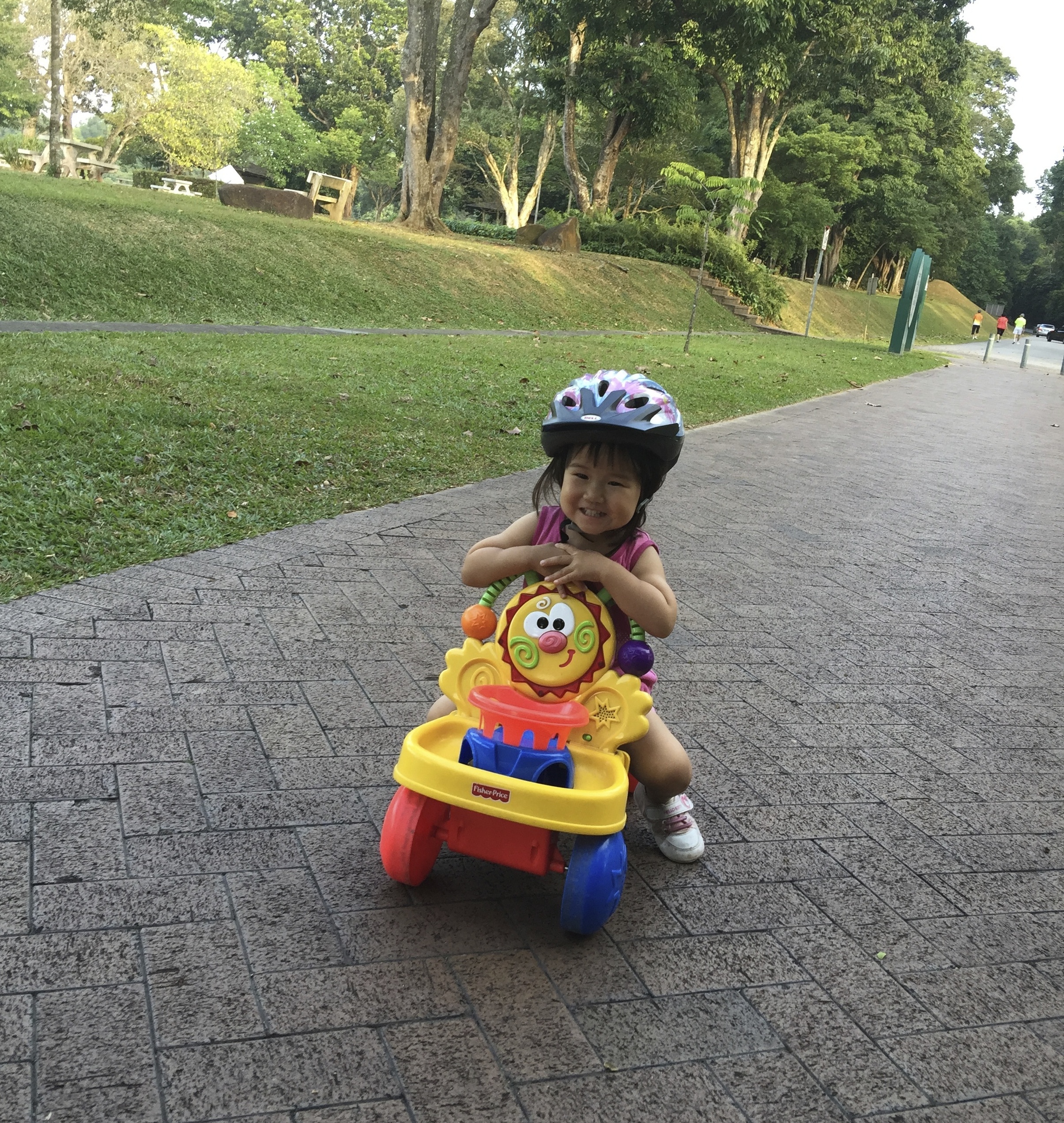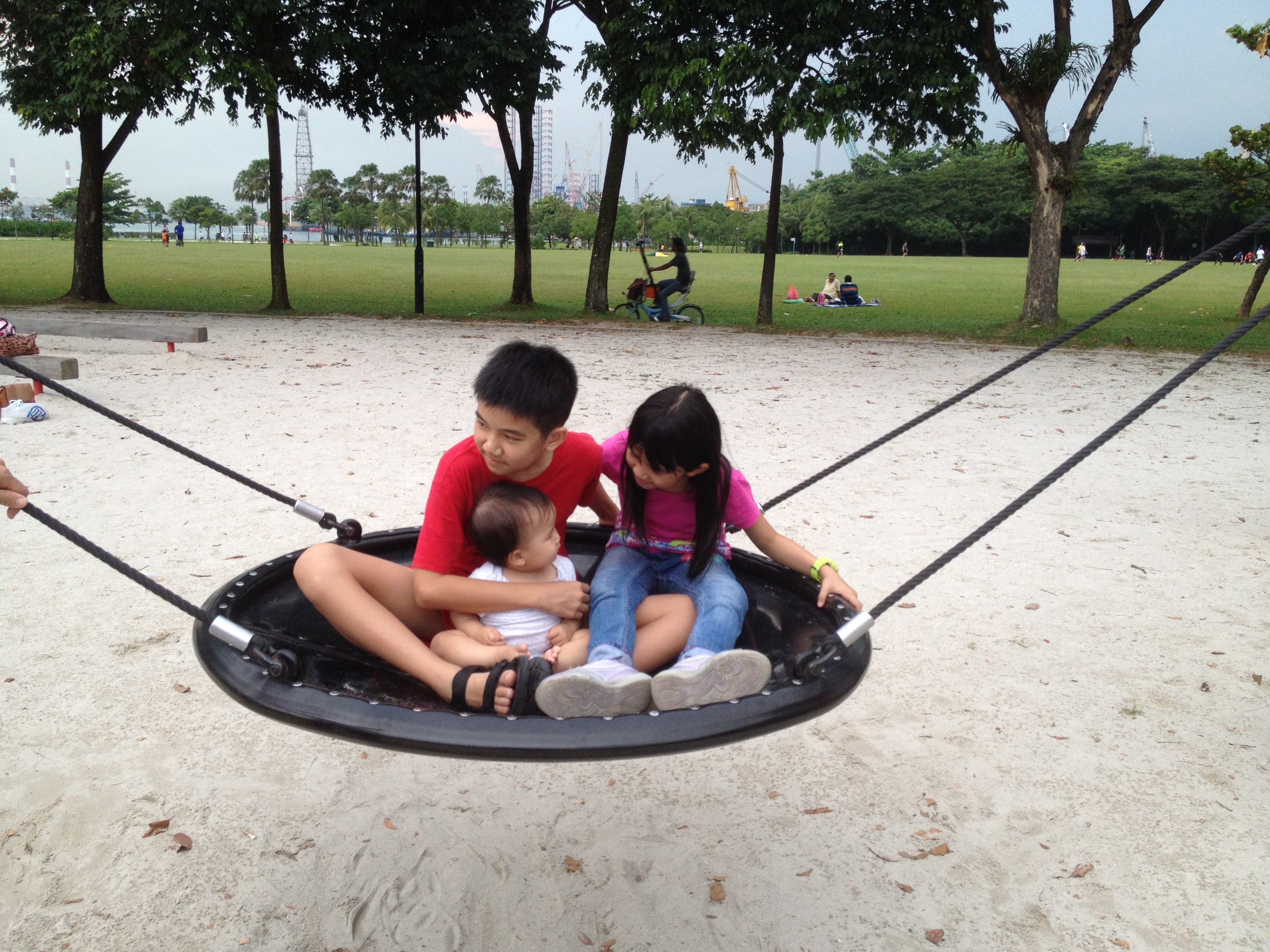To me, the most painful phrase we tend to use when things go wrong is, “If only…” This phrase is highly unproductive and leads us to either lay blame or instill guilt. Yet, when we hear of fatal accidents that could have been avoided, it automatically surfaces.
An Unfortunate Death
A couple of weeks ago, Sam Koh suffered serious head injuries when he fell from his electric scooter and passed away the next day. His younger brother, Benson, had told The New Paper that his brother “just wore a cap, but didn’t wear a helmet. He’s an expert. He has been riding for a long time.”
My heart aches for his family and friends. Such a promising young man’s life cut short just like that. His life has been so needlessly lost at a young age of 23. If only…
Let Sam Not Die In Vain
It is with sadness and togetherness with the family and friends of Sam that I wrote this article. It is my desire to not let him die in vain, to use this incident as an opportunity for others to learn so that more people will be saved. One life lost in this manner is one too many. What can we learn from this incident? How can we prevent a similar occurrence?
We Grew Up Without Helmets, Didn’t We?
I’ll confess. I’ve never ridden the bicycle with a helmet when I was growing up. I just went to East Coast, rented a bicycle and sped around. I was never taught about wearing a helmet then. I only started wearing a helmet regularly after I enlisted in National Service. No one I knew ever died because they had ridden without a helmet.
Horror Stories Of Cycling Without A Helmet
It was only after I became a father that the importance of a helmet while riding a bicycle was instilled in me. Maybe because at that time, I was working in an Orthopaedics Department and heard horror stories from emergency personnel of cyclists dying or suffering severe head injuries because they did not wear a helmet. Those were deaths and injuries that could have been prevented by wearing a simple device called a HELMET. The importance of wearing a helmet was brought closer to home following an accident experienced by a colleague who cycled to work everyday. One day, a truck bumped into the back of this colleague’s bicycle while he was cycling to work and he literally flew off his bike. He was badly bloodied up and his helmet cracked in two upon impact on the ground. If he had not had a helmet on, his skull would have fractured instead of the helmet and he probably wouldn’t have lived to tell his tale.
Wearing Helmets As A Rule
We were living in Vancouver at that time and it is a local rule that all cyclists must wear a helmet. When my son took his first cycling lesson at the age of 4, the instructors coached and taught the importance of wearing a helmet while cycling. Two years later we moved to the US and my son joined Boy Scouts of America (BSA) as a cub scout. It is a written rule in BSA that all scouts and accompanying adults taking part in any activity on bicycles and roller blades must wear a helmet. No helmet, no wheels.
So from young, my children were not allowed to be on anything with wheels (of course that excluded buses and cars) if they did not have their helmets on. As soon as they rode their first tricycle, bicycle and scooter, or put on their roller blades, we made them wear their helmets. There were no exceptions. No helmet, no wheels. That was and still is our rule to this day. Even if they wanted to cycle in or around the house, they needed to have their helmets on.
Make Wearing Helmets A Habit
Many parents may think that the little ones don’t go very fast on their bicycles or scooters. Even if they fall, they won’t hurt themselves very badly. However, putting on the helmet at a young age is not about whether the children are fast enough to hurt themselves or not. It is about developing a habit. As parents, we can only hope that putting on a helmet every time they get on wheels becomes a habit that will carry over through their teenage years to adulthood.
Sadly, in Singapore, we see many people, children and adults alike, without helmets when they cycle, scoot, skate or blade. When our children ask why they have to wear their helmets when others don’t, we explain that it’s our family rule because we want everyone to be safe. Once the children are used to putting on their helmets when they are young, putting on their helmets when they are older becomes a natural habit.
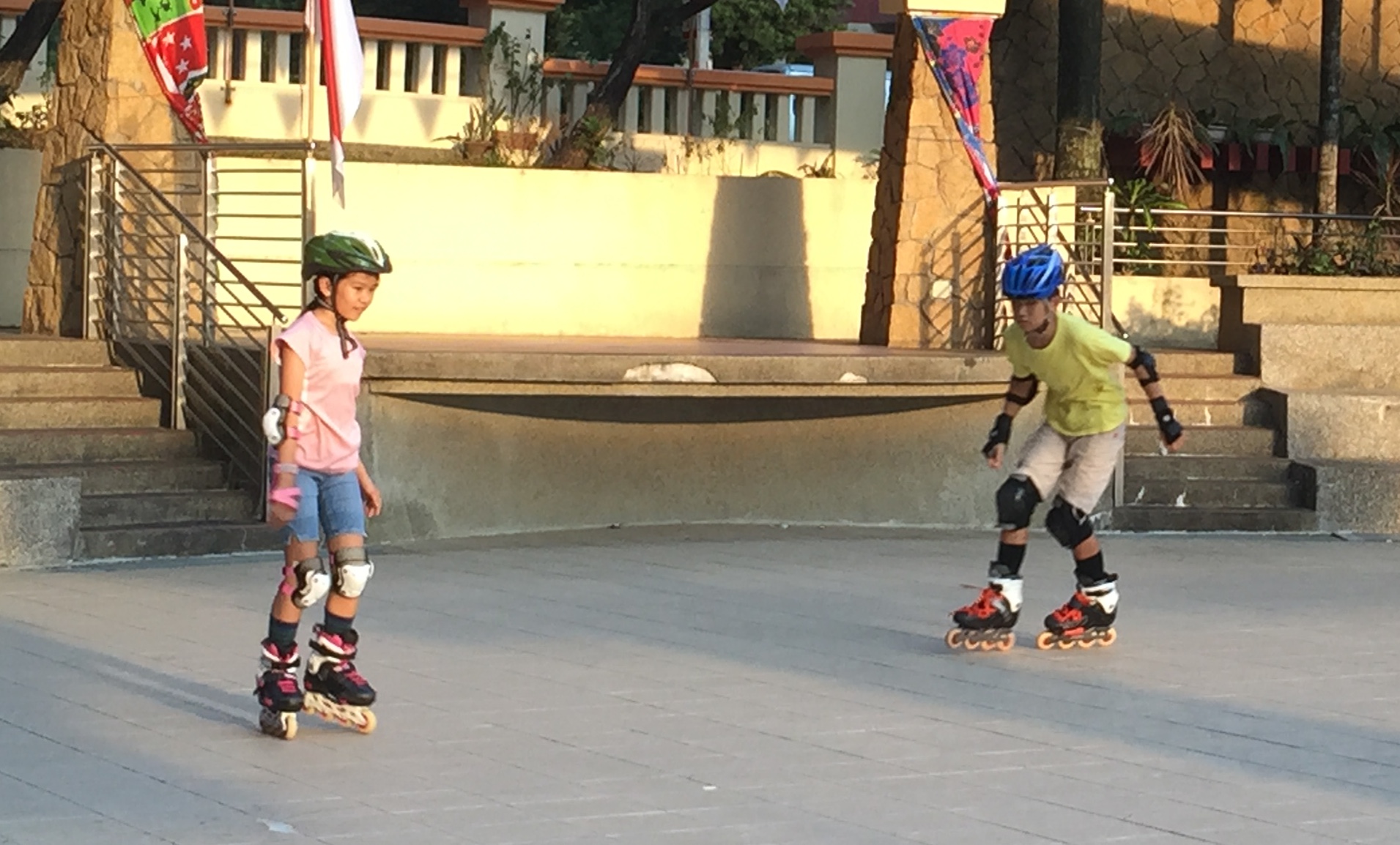
It’s Easier To Instil Habit When They Are Young
When the children are not competent on wheels, it is easy for us parents to insist they wear a helmet. If they have never needed a helmet when they were younger, slower and less sure on their wheels, will they think they need a helmet when they become more competent and go faster on their wheels? Probably not. And therein lies the danger.
My 3-year-old knows our helmet rule too. Whenever she wants to ride on her scooter or balance bike, she will go look for her helmet. My teenager also knows if he forgets to bring his helmet when we go roller blading, he can sit by the side and watch the bags for the rest of us. As an accompanying adult in any activities on wheels, I make sure I set a good example by wearing my helmet too.
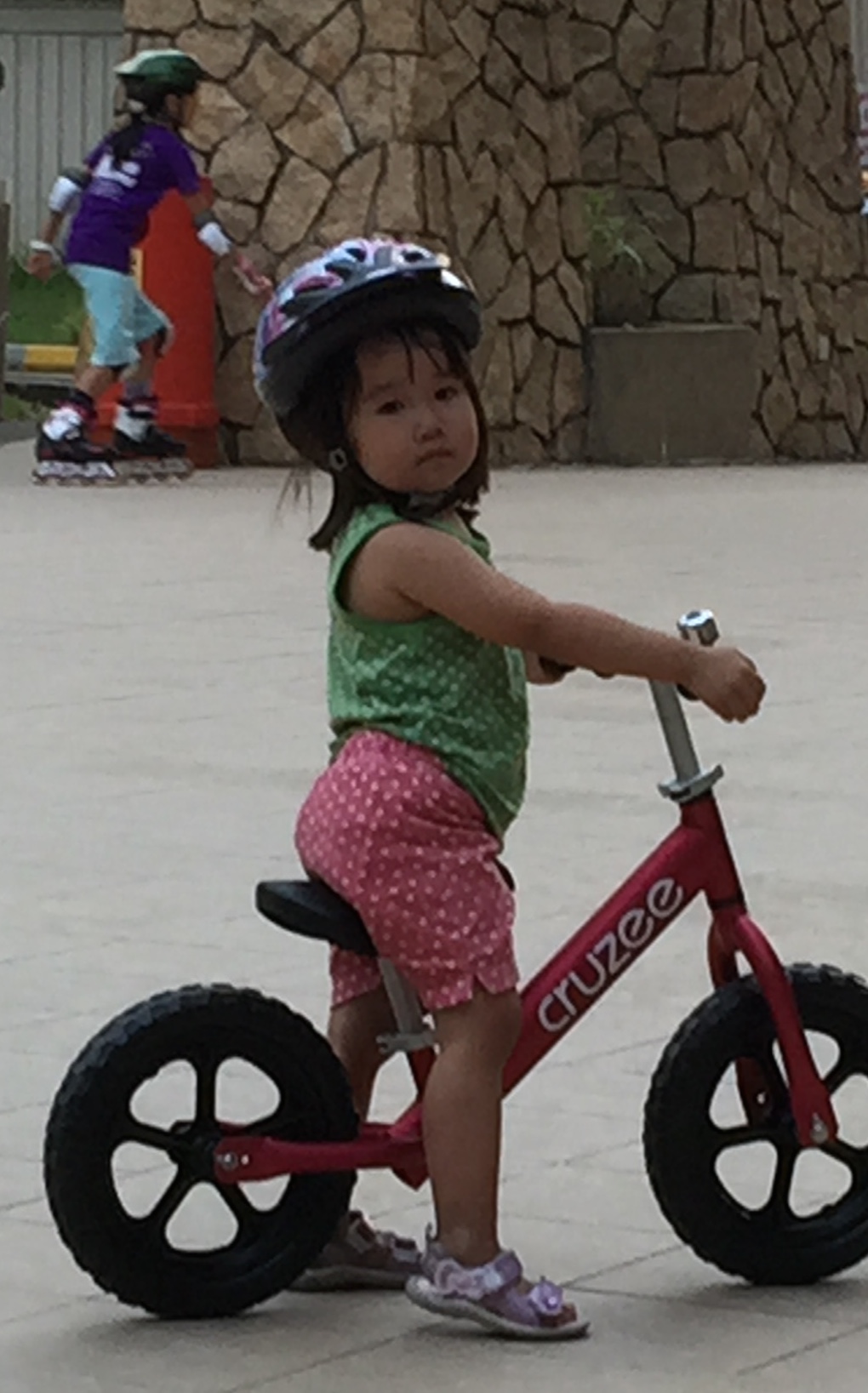
Wearing Helmets Right
While wearing a helmet is very important, it is practically useless if it is not a sturdy helmet or if it is not worn properly.
a) The right helmet
Getting a good helmet is important. When getting a helmet, choose one that has passed ANSI or ASTM tests. Such helmets will be able to absorb the impact and protect the skull. The box for the helmet will indicate clearly that the helmet had been certified and there will be stickers inside the helmet indicating likewise.
b) Helmets have limited shelf life
The foam in a helmet has a limited shelf life typically of about 5 years. Beyond this period, the foam will have deteriorated and not able to absorb impact forces even though it may look perfectly good on the outside. Get a new helmet if yours is old. Do not use hand-me-downs or second-hand helmets especially if you do not know how many years it has been in use. A helmet with poor material will not serve the purpose of protecting your skull.
c) Buckle it
So now you have a new certified helmet. Just putting the helmet on the head without buckling it is useless. As soon as we fall, that helmet will fly off our heads, defeating the purpose of wearing a helmet in the first place. So make sure the helmet is clipped on.
d) Strap it tight
Got the helmet buckled? Fantastic. But let’s make sure it is snug against your head. After buckling the helmet on your head, jerk your head around a little, forward, backward, sideward. If the helmet slides, it’s too loose. Adjust the straps till the helmet doesn’t slide around. If no matter how you adjust the straps the helmet still slides, it is not a well fitting helmet. Get another one. Of course there is not need to tighten the straps so much that you choke yourself. There are helmets with tightening devices at the back of the helmet. Those help to hold the helmets in position when they are properly put on.
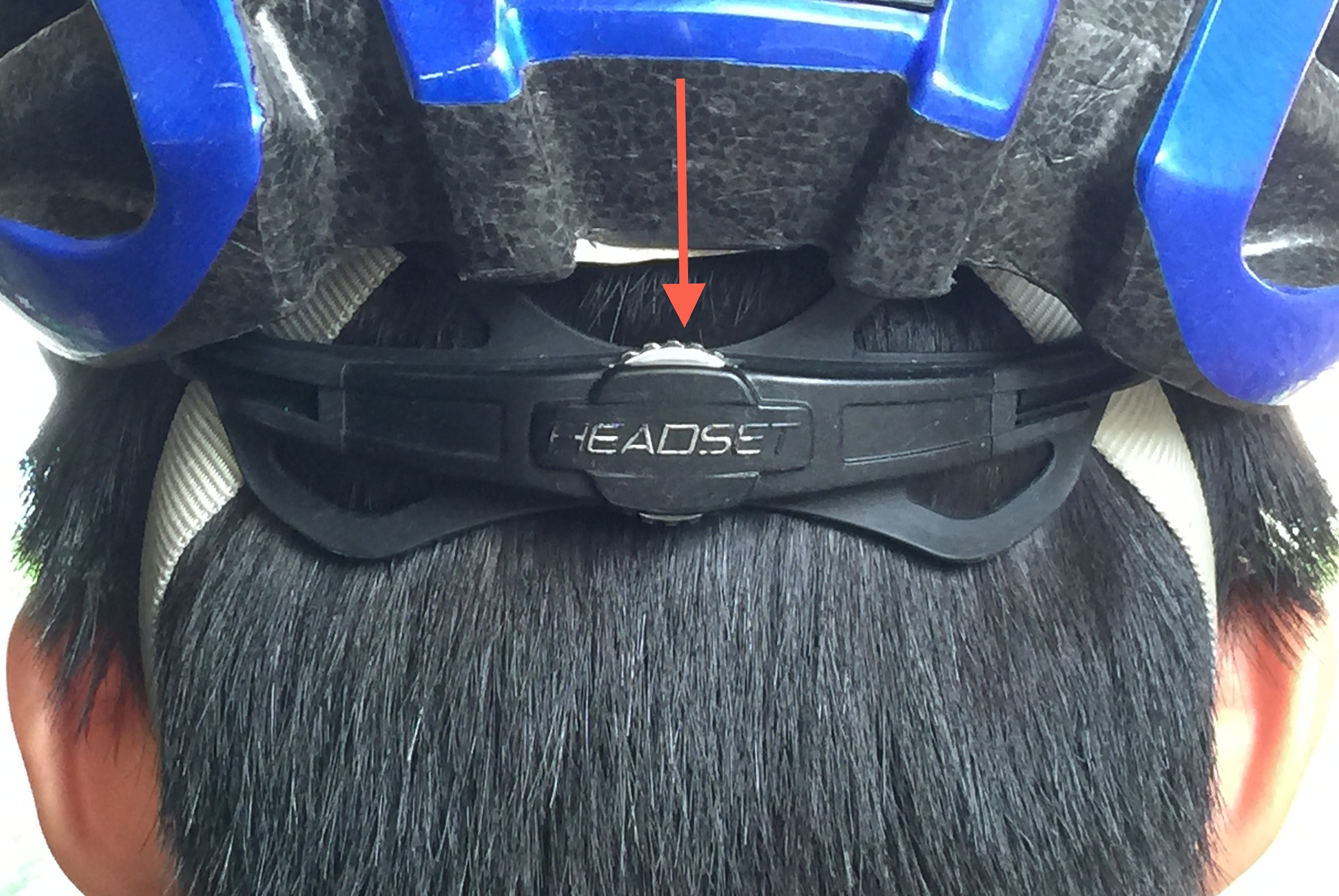
Invest in a new, certified and well-fitted helmet. It is worth it.
Let’s Keep Everyone, Especially Our Children, Safe
Let us all help protect our children. Help them develop the habit of putting on a helmet whenever they get on wheels, be it a bicycle, scooter, roller blades, long board, hover board, unicycle, etc. We never know when that helmet might save lives. Let us never have to utter the phrase, “If only…”
If you have enjoyed this post, you might like Part 2 of my Keep Them Safe series.
– Juay –

